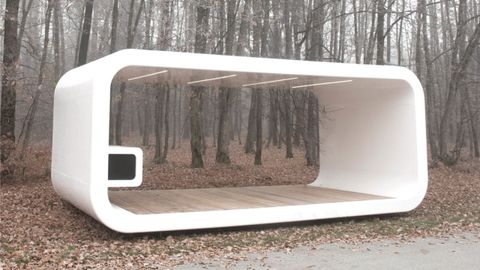Many aspire to the kosmische greatness of the music that poured from Germany in the early 70s, but few do it as persuasively as Neil Rudd. This third album under his ELBL banner, recorded over a two-year stretch in London and LA, finds him building on the instrumental giddiness of 2012’s Heavy Electrics.
Cue synthetic riffs, sweeping electronic rhythms and a procession of loops and effects. But what sets Rudd apart is his artful balance of melody and drone, bringing a rich fullness to urgent gems like Chiba Prefecture or near-celestial Habitat ‘67. At times, as on Los Feliz To Griffith, he affects an ambient kind of chorale, running silvery piano lines through a wash of wordless harmonies.
Even his more minimal pieces carry the soulful warmth of Another Green World-era Eno or modern Manc duo, Marconi Union. He’s a man who wears his influences proudly: the soft pulse of Tangerine Dream, the blissed-up motorik of Harmonia (most explicitly in the title track and the blinding rush of 13th Looking South…), or the otherworldliness of Vangelis’s Blade Runner soundtrack.
That said, he’s equally aware of the need to transcend them, and he does wonderfully.


